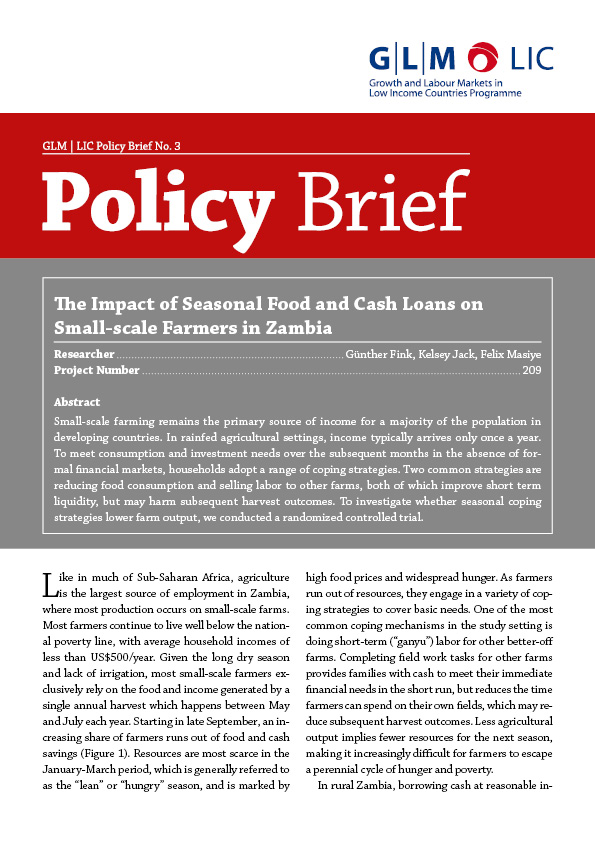Small-scale farming remains the primary source of income for a majority of the population in developing countries. In rainfed agricultural settings, income typically arrives only once a year. To meet consumption and investment needs over the subsequent months in the absence of formal financial markets, households adopt a range of coping strategies. Two common strategies are reducing food consumption and selling labor to other farms, both of which improve short term liquidity, but may harm subsequent harvest outcomes. To investigate whether seasonal coping strategies lower farm output, we conducted a randomized controlled trial.

GLM|LIC Policy Brief No. 3